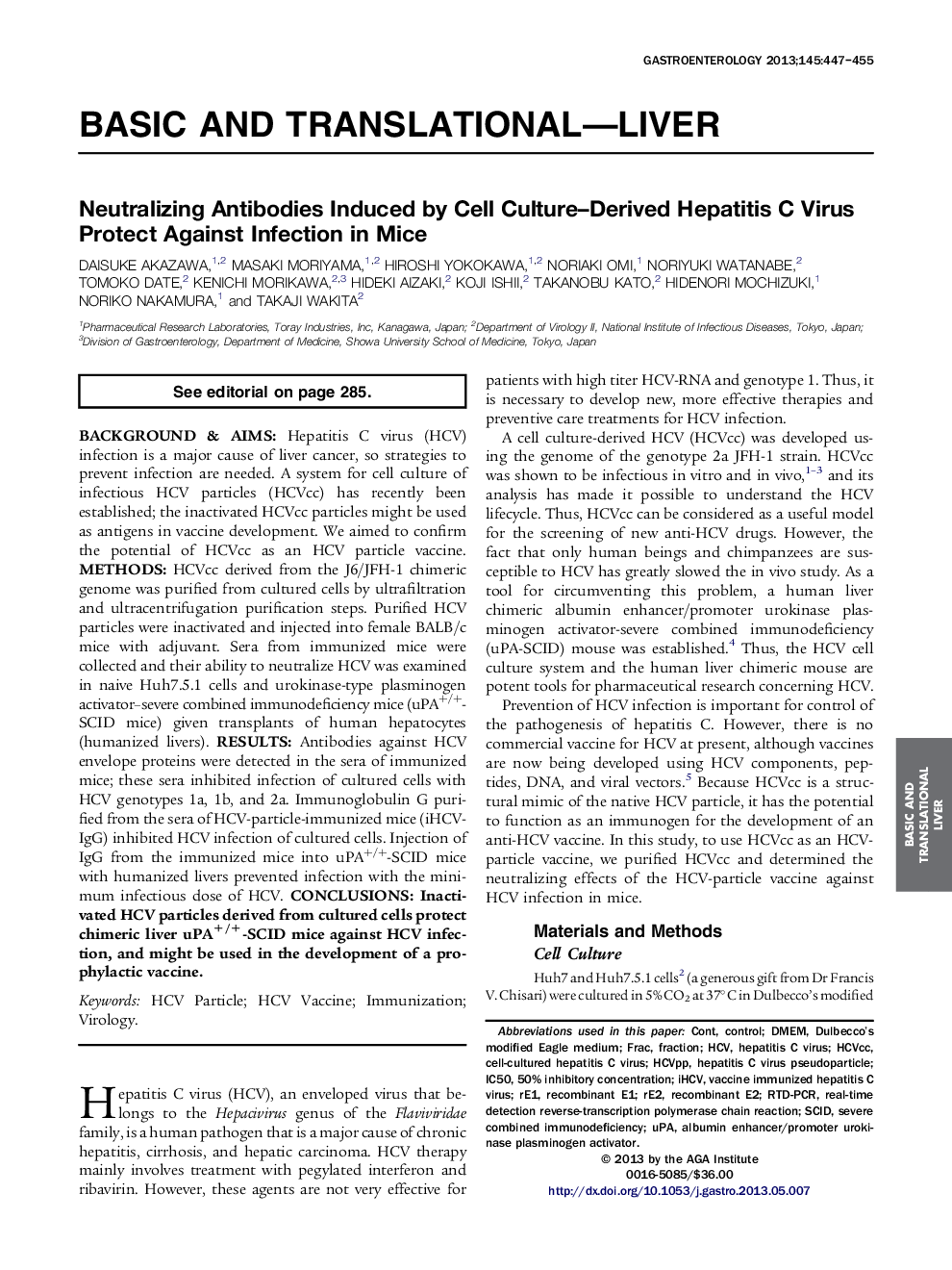| Article ID | Journal | Published Year | Pages | File Type |
|---|---|---|---|---|
| 6095017 | Gastroenterology | 2013 | 13 Pages |
Background & AimsHepatitis C virus (HCV) infection is a major cause of liver cancer, so strategies to prevent infection are needed. A system for cell culture of infectious HCV particles (HCVcc) has recently been established; the inactivated HCVcc particles might be used as antigens in vaccine development. We aimed to confirm the potential of HCVcc as an HCV particle vaccine.MethodsHCVcc derived from the J6/JFH-1 chimeric genome was purified from cultured cells by ultrafiltration and ultracentrifugation purification steps. Purified HCV particles were inactivated and injected into female BALB/c mice with adjuvant. Sera from immunized mice were collected and their ability to neutralize HCV was examined in naive Huh7.5.1 cells and urokinase-type plasminogen activator-severe combined immunodeficiency mice (uPA+/+-SCID mice) given transplants of human hepatocytes (humanized livers).ResultsAntibodies against HCV envelope proteins were detected in the sera of immunized mice; these sera inhibited infection of cultured cells with HCV genotypes 1a, 1b, and 2a. Immunoglobulin G purified from the sera of HCV-particle-immunized mice (iHCV-IgG) inhibited HCV infection of cultured cells. Injection of IgG from the immunized mice into uPA+/+-SCID mice with humanized livers prevented infection with the minimum infectious dose of HCV.ConclusionsInactivated HCV particles derived from cultured cells protect chimeric liver uPA+/+-SCID mice against HCV infection, and might be used in the development of a prophylactic vaccine.
